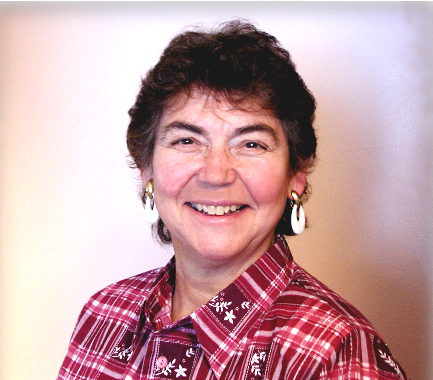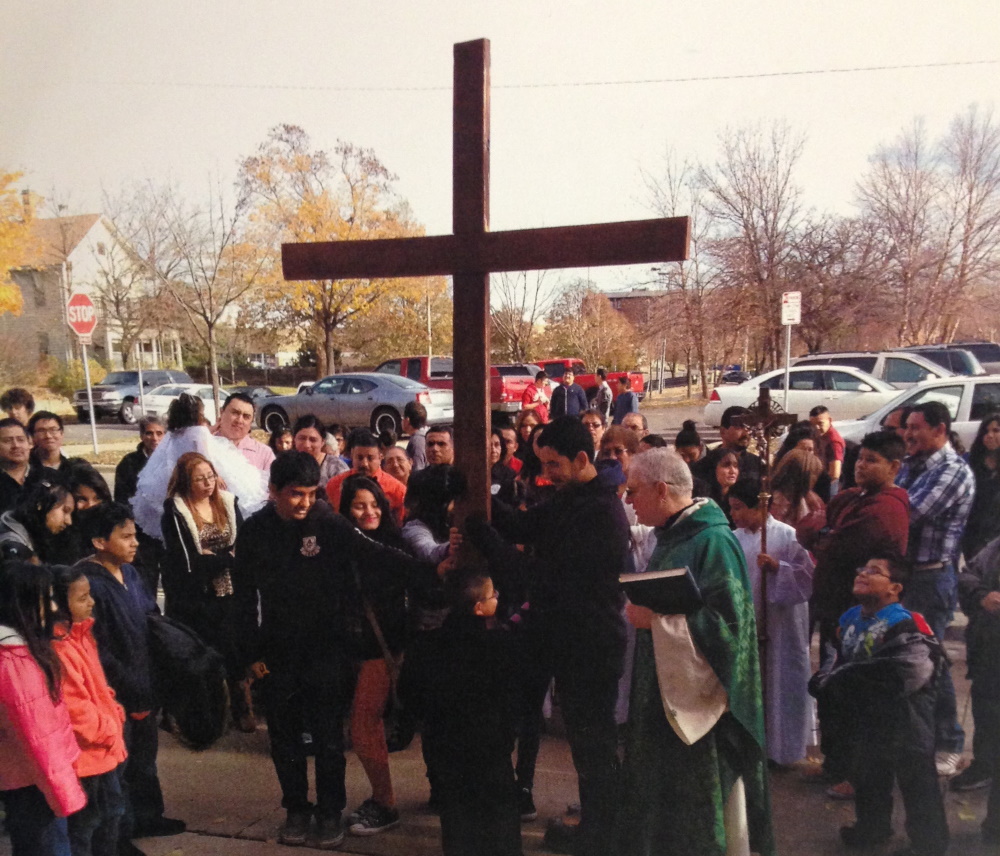 It seems like only last month because the memories are so keen when I met Fr. Jim Dunning for the first time. He and Christiane Brusselmans were giving short courses and workshops on the new Rite of Christian Initiation of Adults. In his 1978 book New Wine: New Wineskins, he set the tone for this radical change in the church’s vision and work of welcoming new members.
It seems like only last month because the memories are so keen when I met Fr. Jim Dunning for the first time. He and Christiane Brusselmans were giving short courses and workshops on the new Rite of Christian Initiation of Adults. In his 1978 book New Wine: New Wineskins, he set the tone for this radical change in the church’s vision and work of welcoming new members.
After participating in one workshop, I was hooked. Their vision and passion resonated so completely with the vision of the renewal of the Second Vatican Council and the liturgical renewal. The vision of the Council for the restoration of the catechumenate made sense. It echoed the gospels. It made a difference in how we were called to be church. It was exciting, renewing and faith-filled. It changed many lives, including mine.
As we await the new translation of the Order of Christian Initiation of Adults, this is a prime opportunity to step back (or forward) and evaluate how we are implementing the initiation process.
- Has the church’s vision of the process been the vision we have implemented in our ministries?
- Has the vision of formation, apprenticeship, and discipleship given in the ritual text really taken root?
Where to start
We begin with the end in mind. Our ultimate goal is conversion and renewal.
- How have our parish communities have been renewed through the whole-parish vision of the initiation process?
- How have our neophytes found a home and a path to involvement in our parish life?
A key aspect of implementing the vision of the church depends strongly on the formation of the parish leaders and initiation ministers and the parish and diocesan celebration of the rites. So, how are we doing? What have been the highlights of regional, diocesan, and parish formation of initiation ministers?
A methodology based on RCIA 75
Jim Dunning’s method was to look closely at paragraph 75 of the RCIA and focus on three aspects of the initiation process:
- liturgical celebrations
- catechesis and conversion
- strategic incorporation of the process within the parish community
Schedule a time with your team or even just for yourself to reflect on these questions. Respond to these questions for each of the three aspects above:
- What are we doing (for liturgy, catechesis, incorporation within the community)?
- What is the vision of the restored catechumenal process (for liturgy, catechesis, incorporation within the community)?
- What are our strengths and what can be changed for the better (for liturgy, catechesis, incorporation within the community)?
- What are the specific steps that need to be taken (for liturgy, catechesis, incorporation within the community)?
RCIA 75.1: Catechumens are formed through catechesis, accommodated to the liturgical year, supported by celebrations of the Word, leading to an appropriate acquaintance with dogmas and precepts and a profound sense of mystery—ministry of the word.
RCIA 75.2: Catechumens learn the Christian life through the community, their sponsors and companions in faith, learning to pray, to witness to faith, hope and love, to journey with a progressive change of heart and conduct, manifested in social consequences—ministry of community.
RCIA 75.3: Catechumens are formed through participation in liturgical rites which bless, purify and strengthen them, including celebrations of the Word, especially through Sunday Liturgy of the Word after which they are invited to leave and break open the Word and live the Word they have heard—ministry of worship
RCIA 75.4: Catechumens work actively to build up the church and the community through their apostolic witness and service in collaboration with members of the parish community—ministry of service.
RCIA 76 and following also emphasize the importance of taking time as needed for the participants so that we provide flexibility, guidance, support and express our firm conviction that it is worth the time it takes to experience the process fully and well.
Each of these aspects of the vision— liturgy, catechesis, incorporation within the community—is woven through the entire initiation process. Each seeker is called to recognize and deepen their relationship with God through Jesus Christ.
Whether child, teen, adult, whether in a parish, small faith community, non-parish setting or on a campus, the vision remains central. Coming to know Jesus Christ and developing an intimate relationship with the God who loves each of us and Jesus Christ who gave himself for us, calls us to a life of service, committed to the good of all people.
Necessary adaptations are essential for the formation of catechumens or candidates, whether baptized Christians or uncatechized Catholics. Especially for children, the formation and renewal of the Catholic faith of parents and godparents is essential to an effective process of formation that leads to continuing participation and ongoing formation.
Taking time to re-read and study the introduction of the ritual text (RCIA 1-35) and Christian Initiation: General Introduction (just before the introduction to the Rite of Christian Initiation of Adults), is an excellent way to review how your parish is implementing the catechumenal process.
Taking stock
As we await the new translation of rite, we have an opportunity to take a look at where we’ve been, how faithful we have been to the vision of the Christian Initiation process, and a path forward to an even better experience of Initiation.
As Fr. Jim writes in New Wine: New Wineskins:
It is the fine wine of journeying to God in community…. Even more. It is initiation into a community of believers… [Christian initiation] calls the entire community into mission, into sharing both Good News and their personal faith in the Lord. That is what is so exciting.
Amen, Fr. Jim. Amen.
Your turn
As we get ready for the new text, what end does your parish RCIA have in mind? How are you aiming yourself towards the goal that God wants for your seekers and catechumens? Share your thoughts in the comments below.

Clare Colella is an author and workshop presenter. She is chair of the liturgy commission for the diocese of San Bernardino. She is also a master catechist and the chair of the liturgy committee at Assumption parish. She is a founding member of the North America Forum on the Catechumenate.









